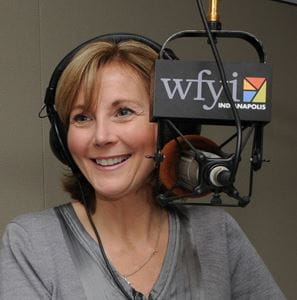“Sound Medicine” covers controversial ethics topics, breakthrough research studies and the day-to-day application of recent advancements in medicine. It’s also available via podcast and Stitcher Radio for mobile phones and iPads and posts updates on Facebook and Twitter.
Are laws restricting sugary snacks effective in fighting childhood obesity? Daniel Taber, Ph.D., postdoc researcher at the University of Illinois at Chicago Health Policy Center, conducted a study that compared the weight of children in states with stringent laws about the consumption of sugary drinks and snacks in schools against states with no such regulations. Dr. Taber discusses the results of his study and his recommendations for legislation to keep school-aged children within a healthy weight range.
What are the consequences of unintended pregnancies? From 2006 to 2010, 37 percent of pregnancies were reported to be unplanned. Unintentional pregnancies have been found to affect the amount of prenatal care mothers receive and decrease the likelihood of breastfeeding. Mary Applegate, M.D., MPH, associate dean for public health practice at the University at Albany School of Public Health, who has an extensive background in family planning, shares the impact of these consequences on babies’ health and the value of education in decreasing the unintended pregnancy rate.
Is there value in adding ultrasound technology to routine mammograms? A recent study suggested adding ultrasounds or MRIs to routine mammograms for women with dense breasts. The study said such imaging techniques increase the likelihood of catching the incidence of cancer in women with dense breasts, who are also at a higher risk of developing breast cancer, but that this method also produces more false positives. Kathy Miller, M.D. shares her perspective on the results of this study and offers advice for women regarding their annual mammograms.
How does mobility affect the diagnosis of breast cancer? A recent study found that women with mobility issues have problems getting mammograms to diagnose cancer and getting early treatment for breast cancer. Theresa Rohr-Kirchgraber, M.D., regularly sees patients at Wishard Hospital and is the director of the IU National Center of Excellence in Women’s Health. She discusses the impact of this finding on patients and what physicians can do for breast cancer patients with limited mobility.
How can personal narratives serve to influence public health policy? Brad Wright, Ph.D, in health policy and management from the University of North Carolina at Chapel Hill, writes the blog “Wright on Health” and advocates the use of personal anecdotes to potentially shape health policy. Wright shares his perspective on the use of personal narrative to highlight public policy issues and whether they are applicable to large, complex health issues.
Can the overuse of technology precipitate forms of mental illness? The recently released book “iDisorder: Understanding Our Obsession With Technology and Overcoming Its Hold on Us” raises this question and cites the existence of several technology-related mental disorders, including the phenomenon of cyclical moods and depression among teenagers who use Facebook. Nancy Ann Cheever, Ph.D., who assisted in the research and editing of this book, shares the idea behind an “iDisorder” and what people can do to prevent themselves from getting too wrapped up in technology.
“Sound Medicine,” co-produced by the IU School of Medicine and WFYI Public Radio (90.1 FM) and underwritten in part by Indiana University-Purdue University Indianapolis, is aired on the following Indiana public radio stations: WBSB (Anderson, 89.5 FM), WFIU (Bloomington, 103.7 FM; Columbus, 100.7 FM; Kokomo, 106.1 FM; Terre Haute, 95.1 FM), WNDY (Crawfordsville, 91.3 FM), WVPE (Elkhart/South Bend, 88.1 FM), WNIN (Evansville, 88.3 FM), WBOI (Fort Wayne, 89.1 FM), WFCI (Franklin, 89.5 FM), WBSH (Hagerstown/New Castle, 91.1 FM), WFYI (Indianapolis), WBSW (Marion, 90.9 FM), WBST (Muncie, 92.1 FM), WBSJ (Portland, 91.7 FM), WLPR (Lake County, 89.1 FM) and WBAA (West Lafayette, 101.3 FM).
“Sound Medicine” is also broadcast on these public radio stations across the country: WLRH (Huntsville, Ala.), KSKA (Anchorage, Alaska), KTNA (Talkeetna, Alaska), KUHB (Pribilof Islands, Alaska), KUAF (Fayetteville and Fort Smith, Ark.), KIDE (Hoopa Valley, Calif.), KRCC (Colorado Springs, Colo.), KEDM (Monroe, La.), WCMU (Mount Pleasant, Mich.), WCNY and WRVO-1 (Syracuse, N.Y.), KMHA (Four Bears, N.D.), WYSU (Youngstown, Ohio), KPOV (Bend, Ore.) and KEOS (College Station, Texas).




